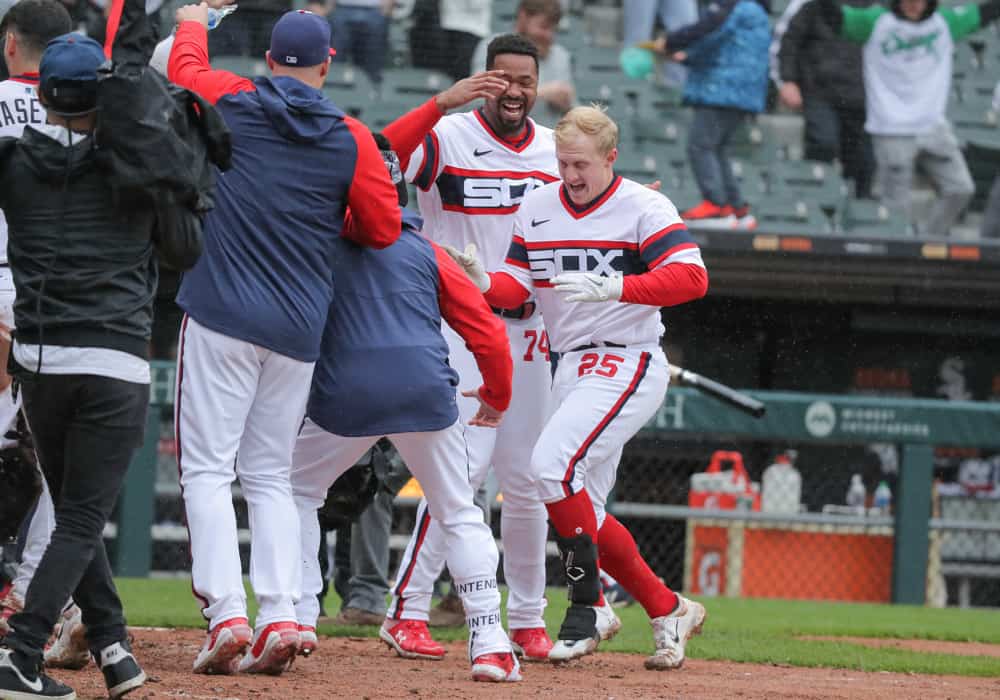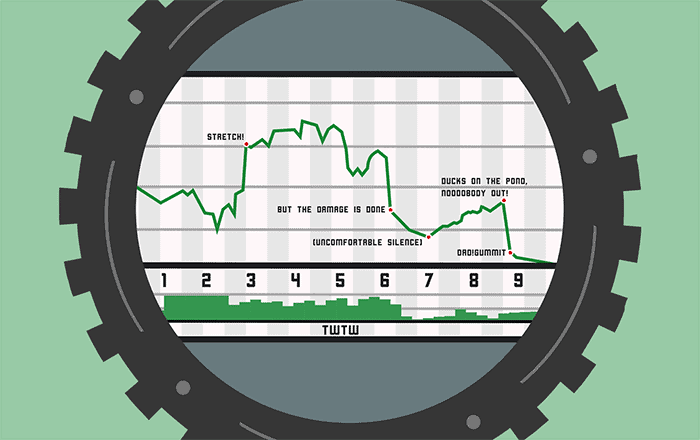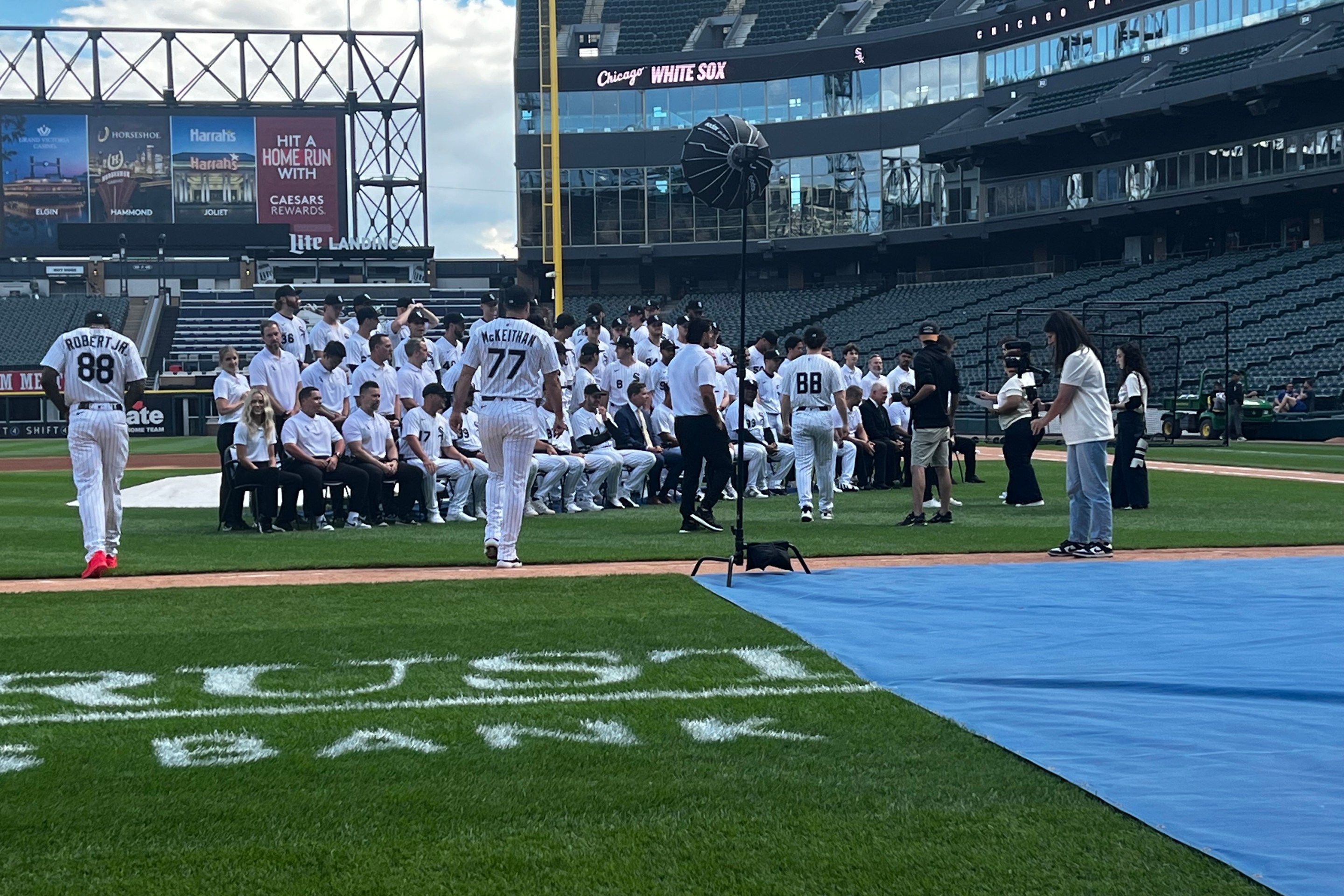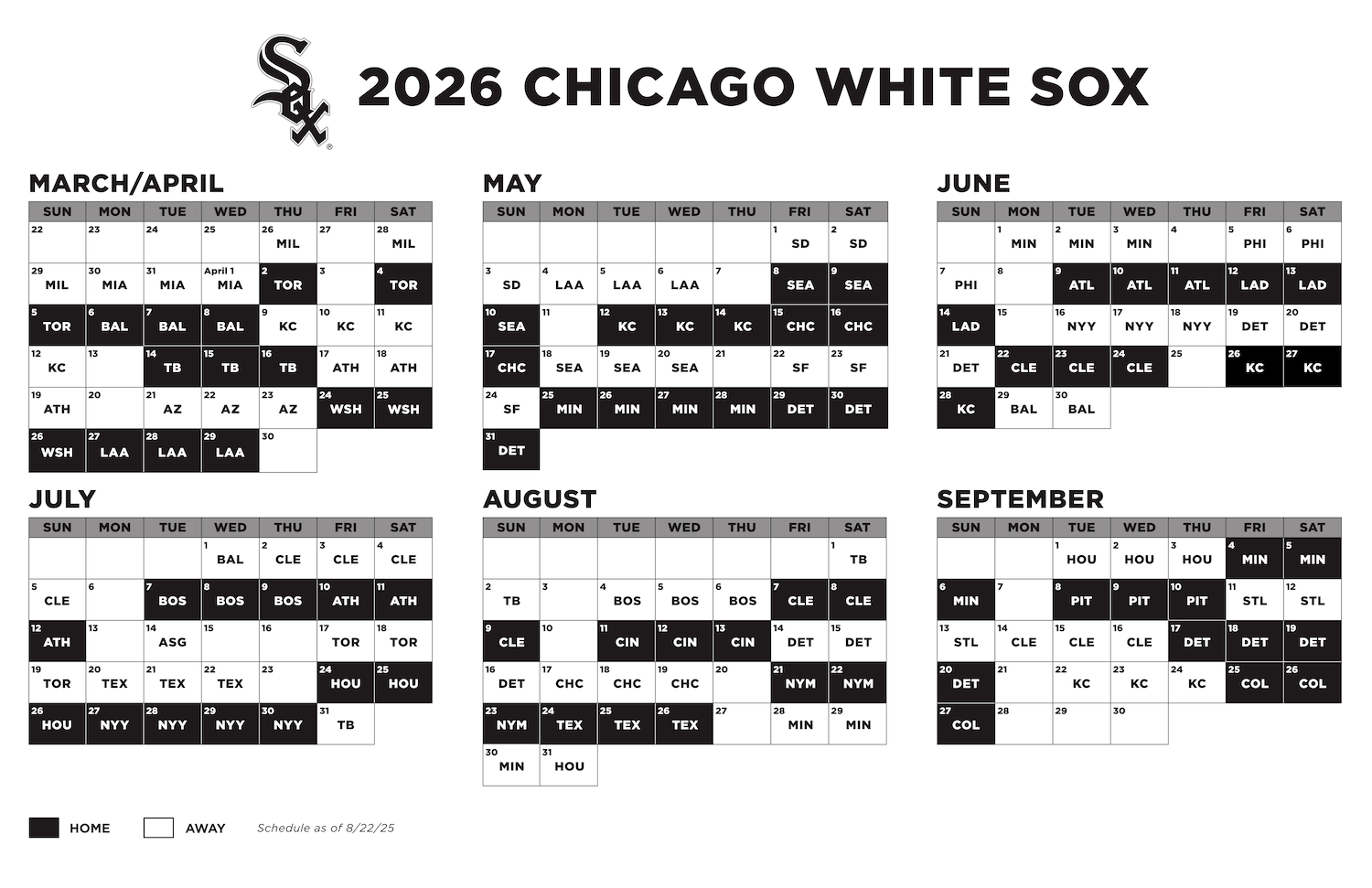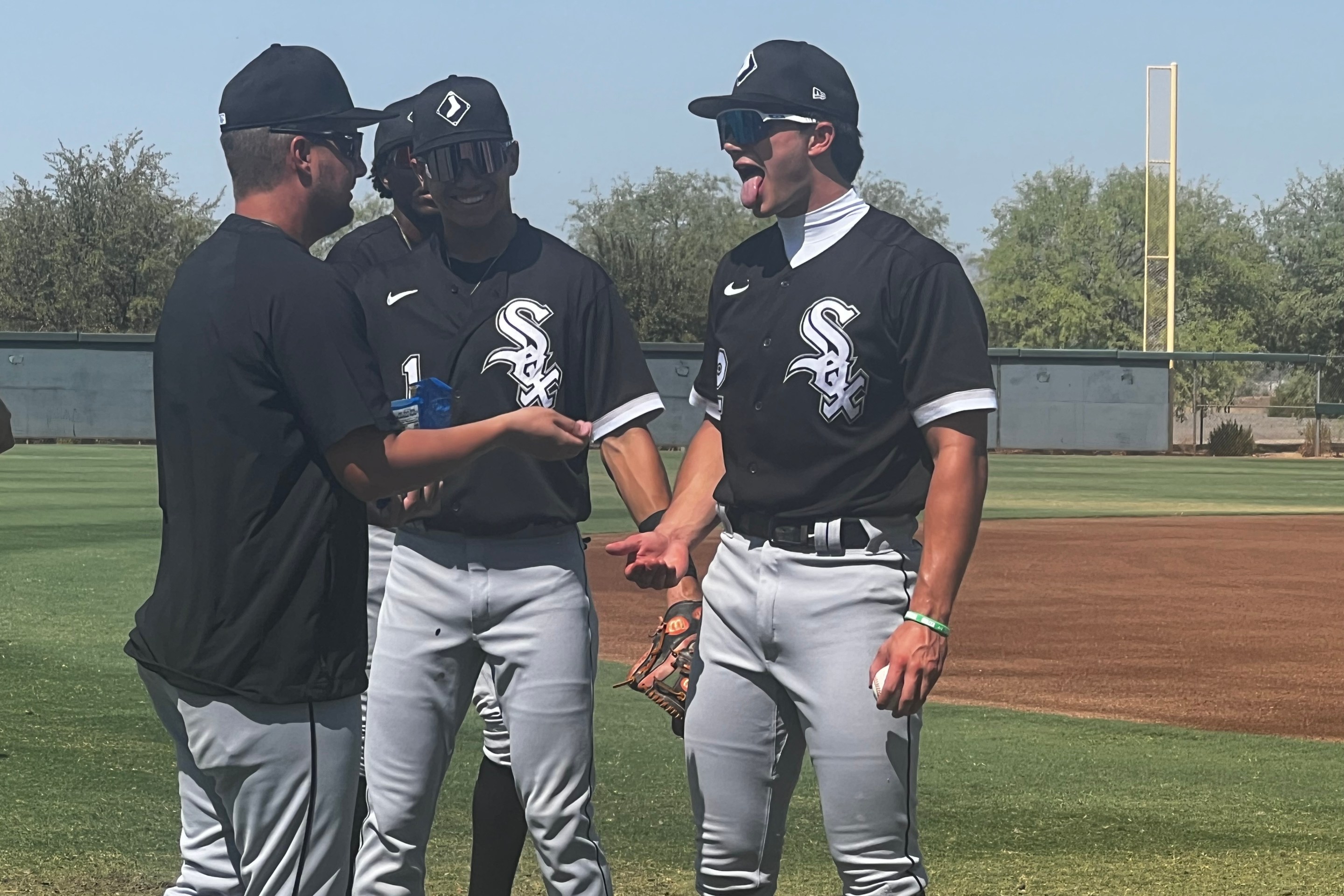I said I'd go back and watch the White Sox's astounding, confounding 12-9 victory over the Rays and fill in the recap, but the final two frames simply did not belong to the first seven. If Sunday's game were an album, the eighth and ninth innings would've been lopped off to contain the runtime to one LP, and then the band probably would've broken up before the bonus material could be spun into anything fruitful.
So I'll instead go back to the recap, slap on some tags and link to this post about six players who distracted me from forming a cohesive narrative about nine disjointed innings because of what they toward at the very end.
Reynaldo López
On a cold and dreary day, just about everybody who came to the mound at Guaranteed Rate Field experienced subpar heat, but even by these low standards, Lopez's fastball velocity drop stood out.
- Kendall Graveman: +1.2 mph
- Jason Adam: 0.0
- Kevin Kelly: -0.4
- Mike Clevinger: -0.6
- Aaron Bummer: -0.6
- Drew Rasmussen: -0.7
- Colin Poche: -0.7
- Gregory Santos: -0.7
- Joe Kelly: -1.1
- Jalen Beeks: -1.8
- Garret Cleavinger: -1.9
- Reynaldo López: -2.4
López only retired one of the four batters he faced, opening with a leadoff walk and ending with a thigh-high fastball that Luke Raley sent out to left-center to put the Rays ahead 5-4. That's when the Sox came out to check on him, and he departed shortly after. The initial assessment is inconclusive.
Grifol on Lopez: "But it seems that early reports are that it’s just a little tired, a little dead arm in the biceps."
— Scott Merkin (@scottmerkin) April 30, 2023
López might embody the White Sox's April better than anybody else, in the sense that the strength of schedule exacerbated his weaknesses. López hasn't been used as a traditional closer, but Grifol has given him the highest-leverage situations foreseeable in any winnable game over the last three innings. The result is an 8.76 ERA thanks to five homers over 12⅓ innings. He's probably not as bad as his -0.4 WAR suggests, but when he doesn't have his best fastball, it's closer than anybody cares to admit.
Regardless, any prolonged absence is the last thing Grifol needs, because so many others are underachieving harder, like ...
Kendall Graveman
... who gave up two runs before he could get the last two outs of the eighth inning, including a solo shot by Christian Bethancourt that made it a 6-4 game.
At least he made productive use of the misfortune. Graveman responded by drilling Manuel Margot with his next pitch, in what I'd consider well-executed retaliation for Zach Eflin's post-homer plunking of Luis Robert Jr. on Friday.
Andrew Vaughn homers and Zach Eflin hits Luis Robert with his next pitch so both teams get warned
— Jomboy Media (@JomboyMedia) April 28, 2023
Chicago manager Pedro Grifol did not like that so he gets ejected for the second night in a row by the same umpire pic.twitter.com/pvVCRzbTCY
White Sox pitchers didn't get the chance to make the point two days before because umpires immediately issued warnings, but Graveman found the right opportunity to make a point with one pitch. Credit the umpires for issuing warnings without ejections here, and the Rays seemed to accept the rebuttal as well.
(I'd say it also suggests that Luis Robert Jr. isn't as unpopular in the clubhouse as he is with the fan base, because they could've just let his plunking go unavenged. Or maybe Robert still isn't popular, but the White Sox just didn't want to risk going 0-7 and bullied.)
Alas, Margot ended up getting the last laugh by coming around to score thanks to ...
Romy González
... who kicked the game from tragedy to farce by flat-out dropping what should've been a routine fly to left for the second out.
At least González didn't enter the game as a defensive replacement. He pinch-ran for Robert after Robert pinch-hit for Gavin Sheets against lefty Colin Poche, and then he took over in left field, because Robert is nursing that alleged leg issue.
González then had to hit for himself in the ninth and lined out to center, dropping his line to .139/.139/.194 over 36 plate appearances. The White Sox have the opportunity to send him down to Charlotte on Tuesday assuming both Tim Anderson and Hanser Alberto return (James Fegan only said he saw Lenyn Sosa packing his bags), and here's hoping they see it through, because González's performance continues to embarrass their talent evaluators.
The White Sox didn't have to warp expectations like they did. González hadn't looked like a major-leaguer in either of his cups of coffee, and considering he spent 2022 dealing with injury and illness, the White Sox could've simply spent the winter offering gentle encouragement along the lines of "don't count him out." Sosa hasn't been meaningfully better than González this season, but the Sox didn't pretend that he was ready to become a fixture, so the expectations were properly aligned.
With González, they issued goofy quotes like this:
"I think there's been nothing but rage about Romy Gonzalez this offseason from the coaches that have worked with him," Rick Hahn said. "They even had a player who went down and came back and came in my office in the offseason and said, 'Don't you dare trade that guy.'"
Maybe González put in splendid work that failed to show up in April, or maybe Grifol's staff defined "great offseason" as "spends winter in the same place as us." And maybe he'll have something to contribute for some team somewhere down the line, but he's made costly mistakes at three different positions, which makes him a Swiss Army Knife that necessitates a tetanus booster.
Aaron Bummer
Bummer now has a 9.29 ERA after giving up two runs in the ninth inning, which should have deflated a White Sox team that scored one in the bottom of the eighth to show a pulse.
Bummer represents the philosophical divide between WARs. FanGraphs puts him in the black -- barely -- at 0.1 WAR, while Baseball-Reference.com reflects fan sentiment at -0.5 WAR. If you side with FanGraphs, you'll note that Bummer hasn't given up a homer, and he has the ninth-worth left-on-base rate among relievers at 47.4 percent, which usually corrects itself.
But his series against the Rays showed why he could be a tease. He's had major problems with his first batter the last two years:
- 2022: .407/.469/.593 over 32 PA
- 2023: .500/.615/.700 over 13 PA
... and it's harder to strand runners when you have to do it with three outs remaining, rather than two or one. Teams that are inclined to steal bases haven't had problems timing him, and that doesn't help with the strand rates, either.
In tangential news, Bummer is yielding a .417 OBP to left-handed hitters, which is actually superior to Jake Diekman's .500 OBP allowed. The White Sox are paying them $7.25 million, which is less consequential than the fact that these are just two more roster spots devoted to players who haven't been able to do their primary job.
Adam Haseley
The catch with taking any punitive action against Luis Robert Jr. for the recent unpleasantries is that the White Sox have offered no competition for the playing time. They can't suddenly pretend to have high standards and give Robert the heave-ho, because that mostly punishes the rest of the roster by making the team demonstrably less talented.
Suffice it to say, Adam Haseley picked a great time to have the most impactful performance of his MLB career.
Haseley went 4-for-5 with a walk on Sunday, and he actually reached base in all six of his plate appearances because he made it to first on a dropped third strike. Throw in a game-tying RBI single in the ninth inning, and he's never put a bigger dent in a game than he did on Sunday. Arranging his performances by Win Probability Added:
- 0.659, Sunday vs. Tampa Bay
- 0.275, June 5, 2019 vs. San Diego
- 0.194, Sept. 15, 2020 vs. New York Mets
Hell, even Haseley's strikeout improved the White Sox's chances of winning. He didn't expect Jason Adam's sweeper to escape Christian Bethancourt because the pitch was high enough to be called a strike if he didn't swing. Once he realized Bethancourt botched it, he scurried to first fast enough for Elvis Andrus' run to score. That narrowed the game to 7-5, and improved the White Sox's chances of winning from 5 percent to 11 percent.
Haseley's been a replacement-level player the last three seasons, two of his singles wouldn't have been ticketed for speeding downstate, and he takes uncertain routes to most fly balls, so there isn't any real reason to think he's even a stopgap for any position. But at a time when a struggling Robert thinks a reduced version of himself is absolutely vital to the White Sox lineup, it was nice to see Haseley step up and show why being able to sprint for longer than 50 feet is a necessity for the job. Again, the White Sox haven't had standards, and they can't just jack them up without a 26-man roster to support them.
Andrew Vaughn
Robert's bad week may provide a little bit of insight into José Abreu's stabilizing clubhouse presence, but Abreu's terrible month with the Astros shows why the White Sox were willing to risk the trade-off.
Abreu finished his first month with his new team hitting .235/.267/.270 with 27 strikeouts to four walks over 28 games. He's no stranger to slow starts, but he's usually had cold weather to blame, and he's usually had signs of strong contact amid the struggles. In Houston, he has nothing going for him thus far.
Abreu’s awful first month in Houston must prompt at least some serious concern. Nothing about it felt like bad luck. A .242 expected batting average and a .354 expected slugging percentage all but confirm that. Abreu slashed .237/.269/.272 and did not once seem like a hitter on the precipice of a breakthrough. He stopped hitting the ball hard, chased outside the strike zone at almost a 38 percent clip and struck far too few line drives.
Up until Vaughn's final swing of April, he hadn't quite distinguished himself with his offensive profile at first base. He came into Sunday with a .245/.342/.402 line, which is far from being the problem with this team, but also not much of a solution.
But then Vaughn took the field on Sunday and pulled off a José Abreu Hat Trick. He grounded into a double play, he was hit by a pitch, and then he homered with the season's most cathartic bat path.
Vaughn's now hitting .255/.358/.434, which is a lot closer the production that's required from him. We're still early enough in the season that one swing can make a big difference at an individual level, but because the White Sox are 13 games under .500 just one damn month into the season, they're going to need a lot of these one swings from a lot of individuals to reverse the fortunes of the collective.
